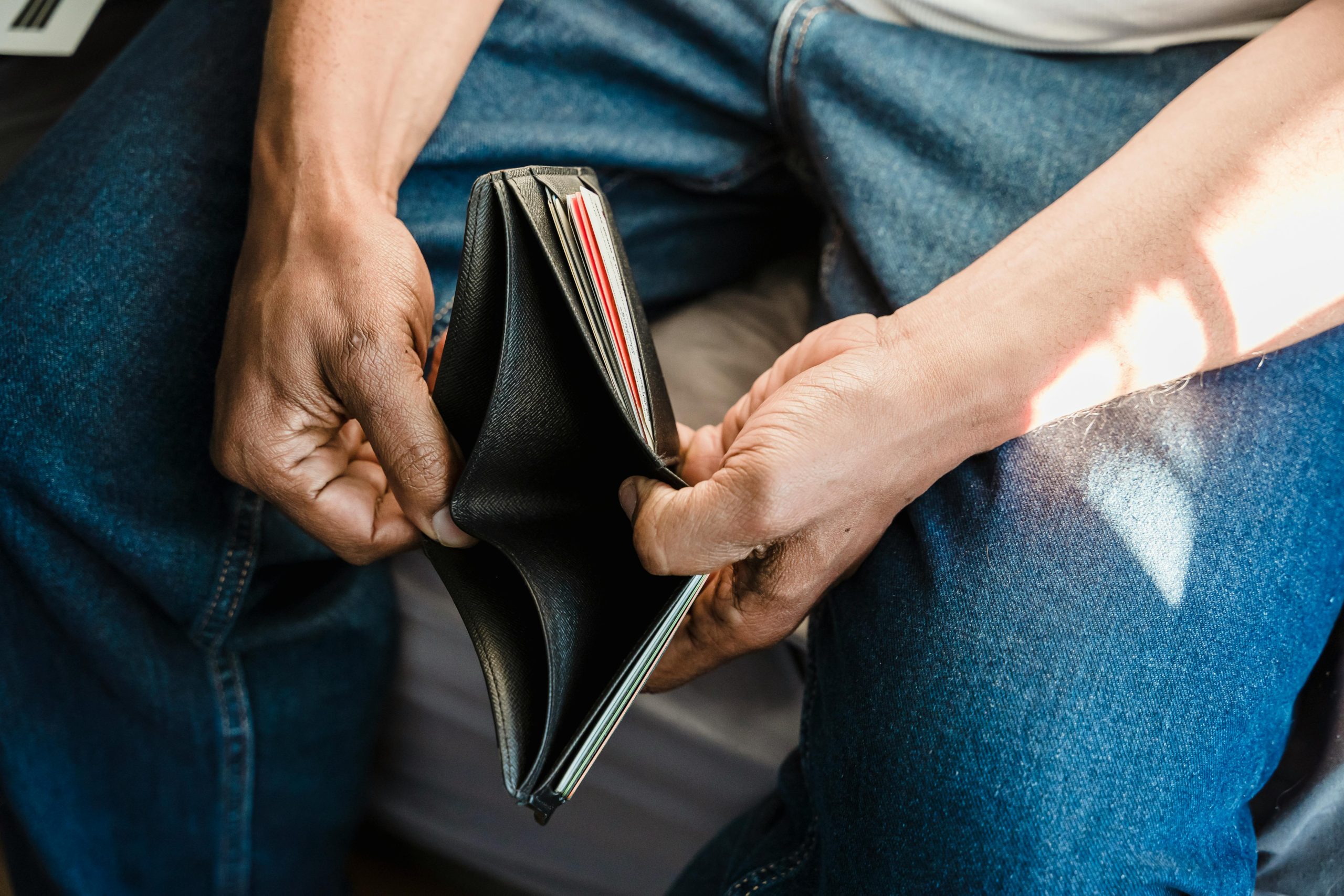
With regards to cash, there’s no scarcity of opinions about why some individuals have it and others don’t. On one aspect, there’s the “bootstraps” crowd, aka individuals who consider monetary hardship is a direct results of poor decision-making. In response to this view, being broke is basically a alternative, a consequence of laziness, unhealthy habits, or failure to plan.
On the opposite aspect, there are those that argue that the system is designed to maintain individuals poor. From housing prices to healthcare, from wage stagnation to scholar debt, systemic failures make it extremely troublesome for the typical particular person to construct wealth, regardless of how arduous they work.
So which is it? Is being broke the end result of private failure or proof that the system is damaged? The reality is sophisticated.
The Private Accountability Argument
There’s a sure logic to the concept that in the event you spend greater than you earn, you’ll find yourself broke. And in some instances, that’s completely true. Overspending, poor budgeting, and lack of economic literacy can result in cash issues, even for individuals with respectable incomes.
Some individuals dig themselves into holes with pointless luxurious purchases, frequent takeout meals, or bank card debt racked up for issues they didn’t want. Others delay saving for emergencies or retirement till it’s too late. From this lens, being broke typically seems to be the results of a sequence of unhealthy selections.
Private duty does matter. No system can assure success for somebody who constantly makes poor monetary selections. However this view solely tells a part of the story, and it conveniently ignores the truth that many individuals are doing all the pieces proper and nonetheless can’t get forward.
The Systemic Roadblocks to Monetary Stability
Now, let’s flip the script. What if somebody is working full-time, and even a number of jobs, and nonetheless can’t afford hire, healthcare, or groceries with out counting on credit score? What if somebody made the “accountable” resolution to get a university training, solely to be saddled with $100,000 in debt and a job that pays $45K a 12 months?
Wages have barely elevated in actual phrases over the previous few many years, however the price of residing has exploded. Lease in lots of main cities has doubled (or extra) in a single era. Healthcare premiums and deductibles are sky-high. Childcare prices rival mortgage funds. And don’t even get us began on how a lot groceries price in 2025.
This isn’t about poor selections—it’s about techniques that make it practically unimaginable to construct monetary momentum until you’re already forward. It’s about wealth being concentrated within the arms of some whereas the remainder tread water or sink.
Generational Wealth: The Secret Benefit
One of the ignored variations between being broke and constructing wealth is whether or not you begin with a security web. Did your dad and mom allow you to with a down fee on a home? Did they cowl your faculty tuition? Would they bail you out in the event you had a medical emergency or misplaced your job?
Many individuals who seem “financially accountable” had assist alongside the best way. And there’s no disgrace in that. However it’s not a stage enjoying area. Beginning with generational wealth (even just a little) provides individuals choices, flexibility, and time that others merely don’t have. If being broke is a alternative, it’s one some individuals by no means even had the posh of creating otherwise.

The Psychology of Poverty
One other piece of the puzzle? The emotional and psychological toll that comes with being broke. Fixed stress, resolution fatigue, and survival-mode pondering can maintain individuals caught in cycles of poverty. Should you’ve ever needed to resolve whether or not to pay hire or purchase groceries, you recognize that “long-term planning” feels laughably out of attain.
Individuals who develop up in poverty typically lack entry to monetary training, mentorship, and even primary examples of wealth-building behaviors. They could not belief banks, keep away from credit score because of worry or previous trauma, or really feel ashamed asking for assist. And even after they wish to make higher selections, the trail ahead isn’t all the time apparent—and even obtainable.
It’s simple to inform somebody to save lots of extra. It’s tougher to inform them the best way to save after they’re already selecting between insulin and hire.
Tradition, Disgrace, and the “Self-Made” Fantasy
In America, the narrative of the “self-made” particular person runs deep. We love tales about individuals who went from rags to riches, as a result of it reinforces the concept that anybody can do it. However that fantasy will be extremely damaging as a result of it implies that in the event you don’t succeed, it’s your fault.
Disgrace retains individuals quiet about their monetary struggles. It makes them really feel like they’re failing at one thing that’s truly stacked in opposition to them. It reinforces a tradition the place asking for assist or demanding systemic change is seen as a weak point. There’s nothing weak about recognizing that the sport isn’t honest.
So, Is Being Broke a Selection or a System Failure?
The reply, frustratingly, is each.
Some individuals keep broke due to the alternatives they make. However way more persons are broke due to the alternatives they by no means received to make. As a result of the system they’re in doesn’t pay a residing wage, doesn’t provide inexpensive housing, and doesn’t help them when life throws inevitable curveballs.
Recognizing systemic failure doesn’t absolve people of duty. However it ought to make us all extra compassionate—and extra prepared to problem the insurance policies and buildings that maintain individuals trapped in cycles of shortage.
We have to cease asking why people are broke and begin asking why the richest nation on the earth nonetheless has thousands and thousands of people that work full-time and may’t afford primary requirements.
What do you assume? Is being broke principally a private alternative, or does the system bear extra of the blame?
Learn Extra:
Right here’s Why Poor Individuals Keep Poor
The Stunning Advantages of Saving Habits that Make You Look Poor

